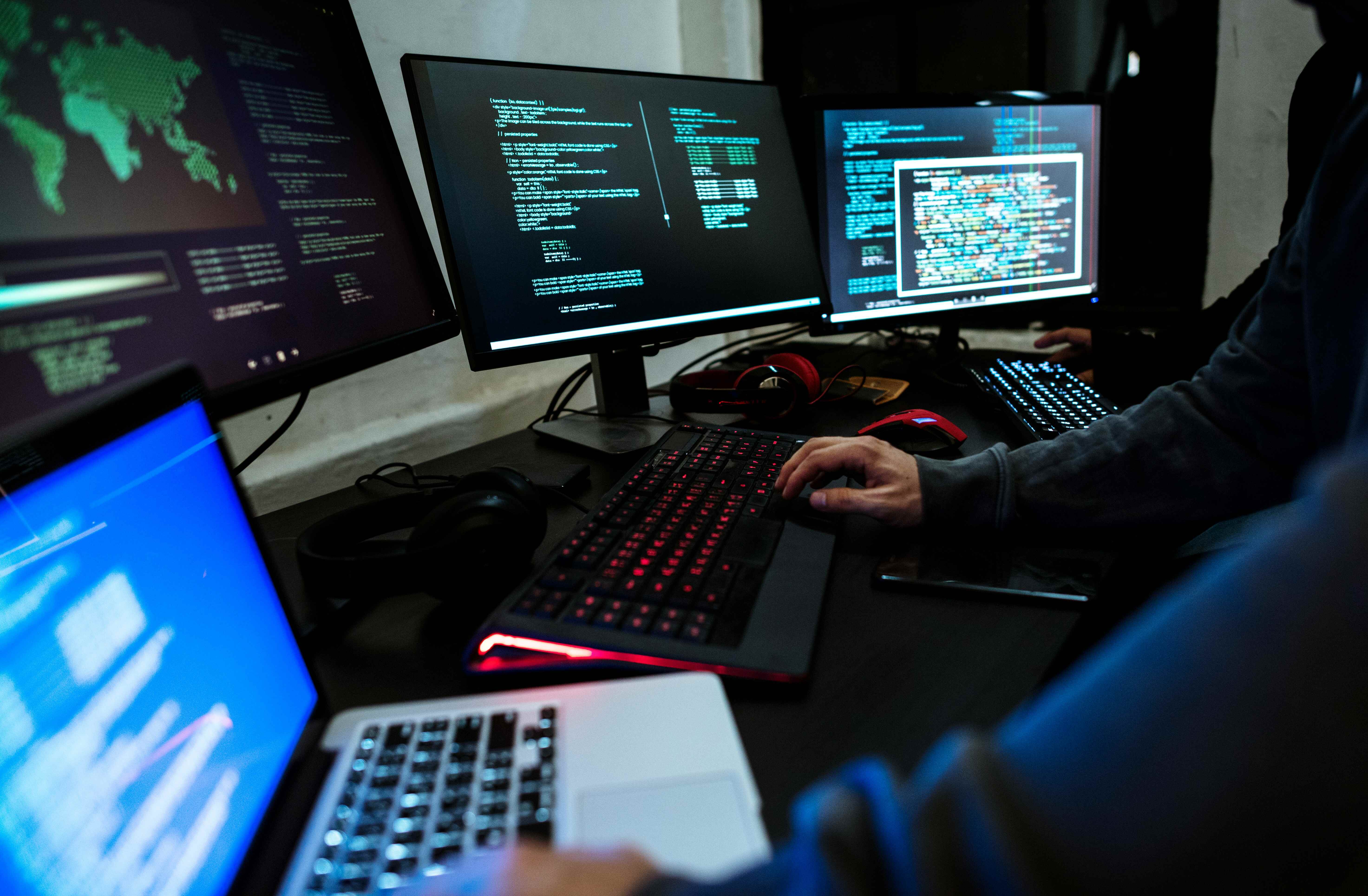Article
Are you Missing Out by Not Diversifying your Cybersecurity Team?
10 Mar, 202510 minutes
Cyber threats don’t all look the same. So why do so many cybersecurity teams?
Hackers come from every background, using different tactics and ways of thinking to break through defenses. The strongest security strategies come from teams that can anticipate those moves. Still, too many businesses fall into the trap of hiring people with the same experiences, the same qualifications, and the same approach to problem-solving. That narrows their ability to spot vulnerabilities before attackers do.
A more diverse team brings fresh perspectives, helping businesses stay ahead of threats. Companies that hire with inclusion in mind see stronger decision-making, faster response times, and better protection against cyber risks.
In this guide, we’ll explain how hiring from a narrow pool of specialists can limit your team's effectiveness, why a diverse talent pool strengthens security, and actionable steps to build a more robust cybersecurity team.
The Current State of Cybersecurity Teams
Tech has a diversity problem, and cybersecurity has an even bigger one. For years, the tech industry has struggled with underrepresentation, particularly in leadership roles. Women, ethnic minorities, and professionals from nontraditional backgrounds continue to face barriers to entry and advancement. While some areas of tech have made progress, cybersecurity remains one of the least diverse fields.
Tech vs. Cybersecurity: Where Does It Stand?
Technology is constantly evolving. It shapes industries, drives innovation, and creates solutions that impact billions of people. It thrives on creativity, problem-solving, and fresh thinking. But for all its influence, tech still struggles with diversity.
Compared to sectors like finance, healthcare, and law, technology has been slower in closing representation gaps. While some areas, such as software engineering and product development, have made progress through targeted diversity efforts, cybersecurity has lagged behind. The hiring pool remains narrow, with companies often drawing from the same backgrounds, education paths, and career tracks.
Cybersecurity is one of the most critical areas of tech, yet it remains one of the most homogenous:
- Gender Representation: Women hold around 24% of cybersecurity jobs, compared to 28% in the broader tech workforce. That number drops even further in leadership roles.
- Ethnic Diversity: Black, Asian, and Hispanic professionals comprise 31.6% of the U.S. tech workforce. In cybersecurity, that number is significantly lower, with Black professionals at 11%, Asian professionals at 8%, and Hispanic professionals at 12.6%.
- Leadership & Seniority: In regions like the U.S., Canada, the U.K., and Ireland, 70% of cybersecurity professionals over 60 are white men, highlighting a lack of diversity in decision-making roles.
Why Cybersecurity Needs a Broader Talent Pool
A lack of diversity affects how problems are solved, risks are assessed, and security strategies are built. Cybersecurity specialists work to stay ahead of threats, but a team that sees risk from only one perspective is more likely to miss vulnerabilities and react in predictable ways.
Cybersecurity recruitment has the potential to shift the industry by expanding the talent pipeline, bringing in specialists with different experiences, and improving how businesses defend against threats. The numbers show cybersecurity is behind.
The question is, what happens if businesses don’t start changing how they hire?

Benefits of a Diverse Cybersecurity Team
Diversity in cybersecurity isn’t a hiring trend. It’s what makes security teams stronger, faster, and better at protecting businesses. Cyber threats come from every direction; if the people defending against them all think the same way, they’ll miss things.
Businesses still hire security talent based on the same patterns—the same degrees, backgrounds, and career paths. That creates gaps—not just in talent but also in how threats are spotted and responded to. A team with different perspectives and experiences will see risks others overlook, challenge weak security models, and react faster when something goes wrong.
Here’s what that looks like in practice:
Stronger Threat Detection and Faster Response
Cyber threats aren’t always technical. Attackers use human manipulation, regulatory gaps, and process weaknesses to breach systems. A team that’s made up only of people with similar technical expertise might miss these kinds of threats.
Here's why diversity matters:
- Fraud prevention experts are more likely to spot phishing or other human-driven attacks that purely technical teams may overlook.
- A variety of experiences means a faster response to new, emerging threats.
- A diverse team can handle both the technical and human sides of security, recognizing vulnerabilities from all angles.
A report from ISC2 found that teams with a mix of diverse professionals spot and stop attacks earlier, saving businesses from costly breaches.
Better Decision-Making Under Pressure
Cyberattacks unfold quickly, and when they do, every second counts. A team that all thinks the same way is more likely to rely on predictable solutions, which can lead to mistakes or delays. Diverse teams make better decisions faster because they bring multiple perspectives to the table.
- Different viewpoints reduce the risk of missing key details in high-pressure situations.
- Teams with legal, technical, and crisis management experience will look at an issue from all angles—technical risks, compliance, operational impact—and make smarter decisions.
- A diverse team also avoids groupthink—leading to more creative solutions and faster action.
Harvard Business Review found that cognitively diverse teams solve problems 30% faster than teams that think alike. That’s critical when lives and business continuity are at stake.
Increased Adaptability in a Changing Threat Landscape
Cybersecurity threats are constantly shifting. What worked yesterday might not work today, which is why your security team needs to be able to adapt quickly. Teams with diverse skill sets are naturally more flexible because they bring different perspectives and strategies to the table.
- Teams with varied backgrounds can quickly shift to address new types of attacks, whether ransomware, phishing, or insider threats.
- Having professionals from different sectors and industries gives your team a broader understanding of what new risks might be on the horizon.
- Adaptability is key, and a diverse team doesn’t get stuck in the past—they build new, stronger strategies for the future.
NormCyber found that organizations with diverse teams respond faster and more effectively to emerging threats, keeping their business protected.
Comparative Analysis: Diverse vs. Homogeneous Teams
Aspect | Diverse Teams | Homogeneous Teams |
Innovation | Higher creativity and a broader range of solutions. | May experience groupthink, limiting creativity. |
Decision-Making | Consider multiple perspectives, leading to better outcomes. | May overlook alternative solutions due to similar thinking. |
Team Dynamics | Potential initial conflicts but improved performance over time. | Higher initial cohesion but risk of stagnation. |
Note: While diverse teams may face initial challenges, they often outperform homogeneous teams as they integrate their varied perspectives.
Strategies to Support Diversity Without Imposing Quotas
Diversity isn’t something that should be forced, it’s about building a team that is stronger, more innovative, and better able to adapt to the constantly changing environment of cybersecurity. Creating diverse teams doesn’t mean checking a box. It means looking for people who can bring new perspectives, ask the hard questions, and see risks others might overlook.
The strategies below can help you achieve diversity in your team while keeping it meaningful, without pushing quotas:
- Inclusive recruitment
- Bias training
- Mentorship programs
- Flexible work policies
Let’s break down how each of these strategies can make a real difference.
Partnering with a Global Technology Recruitment Agency
Building a diverse cybersecurity team is a challenge, but with the right partners, it’s entirely achievable. Working with a specialized recruitment agency that focuses on diversity can help you quickly connect with top talent from a variety of backgrounds.
A partner like McGregor Boyall can help you reach untapped talent pools and ensure your team is well-rounded and equipped to face emerging cybersecurity threats. By collaborating with a recruitment agency that understands the need for diverse skills and perspectives, you can effectively streamline your hiring process and accelerate your team’s growth and performance.
Inclusive Recruitment: Broadening Your Hiring Horizons
We all know that recruitment is key to building a strong team. But if you’re always hiring from the same talent pool, you’re likely missing out on top candidates. Expanding your horizons and actively seeking talent from diverse backgrounds will not only give you access to fresh ideas but also ensure that you’re future-proofing your team.
Here’s how you can improve your recruitment strategy:
- Partner with organizations focusing on increasing diversity in tech and cybersecurity. Consider working with groups like National Center for Women & Information Technology (NCWIT) or Cybersecurity Workforce Development. These organizations help connect you with candidates from diverse backgrounds and skillsets.
- Use inclusive language in your job ads and descriptions to ensure you’re attracting a wider range of candidates. Focus on skills and experience, not just degrees or traditional qualifications.
- Attend diversity-focused recruitment events or host your own to target a broader audience specifically.
By partnering with these organizations and shifting how you recruit, you’re increasing your chances of bringing in someone who can innovate, think differently, and drive the success of your cybersecurity strategy.
Bias Training: Make it a Priority
We all have biases, but that doesn’t mean they need to guide our decisions. Bias is natural, but it can negatively impact your hiring process and team dynamics. Bias training can make your recruitment process and work culture fairer, helping you spot and address unconscious bias where it exists.
Here’s what you can do:
- Implement regular bias training for hiring managers to help them recognize their unconscious biases. This will help make your hiring process more objective and ensure you’re considering the best candidate for the job.
- Encourage diversity in decision-making by promoting inclusive leadership. Show managers the value of diverse teams and how they lead to better problem-solving.
- Review your hiring metrics to ensure no unintentional biases creep into the process. This could include using blind hiring techniques to eliminate unconscious bias early in the recruitment stage.
By addressing bias head-on, you’re encouraging the creation of an environment where everyone is treated fairly, and all candidates have an equal opportunity to succeed.
Mentorship Programs: Support and Growth
Mentorship isn’t just for new hires or junior team members. It’s about developing all talent, no matter their background. A strong mentorship program is all about building a long-term support system for growth, learning, and retention.
How you can implement mentorship programs:
- Formal mentorship programs pair junior and senior team members to support professional development. This helps newer employees understand the company culture and grow within their roles.
- Reverse mentoring is also beneficial—this gives more senior leaders the opportunity to gain fresh perspectives from junior or underrepresented employees.
- Offer group mentorship or peer support to allow employees to share experiences and learn from one another in a less formal, more collaborative environment.
By creating strong mentorship programs, you’re helping underrepresented groups advance in their careers and giving them the tools they need to be successful, leading to stronger retention and a more inclusive workplace.
Flexible Work Policies: Let Employees Work Where They Thrive
One of the easiest ways to retain diverse talent is by offering flexible work options. Whether it’s adjusting the workday to accommodate personal commitments or allowing employees to work remotely, flexible policies can make a huge difference in employee satisfaction and retention.
What flexible work looks like:
- Remote work options: Let employees work from home or anywhere they are most comfortable, especially in times of need or for those with long commutes.
- Flexible hours: Allow your team to work when they’re most productive—whether that’s during the standard 9-5 or outside of it.
- Family or caregiving leave: Create policies that allow employees to take care of personal or family needs without the fear of losing their job.
Flexible work options support employees’ personal lives, which means they are more likely to stay loyal and motivated, bringing their best selves to work every day.

Final Insights on Building a Diverse Cybersecurity Team
Diversity in your cybersecurity team is about more than just filling a gap. It’s about strengthening your defenses with fresh ideas and perspectives. When everyone thinks the same way, your team risks missing the subtle threats or overlooking the bigger picture. But when you bring in diverse minds, you’re setting your team up to tackle challenges from all angles.
The truth is, your security is only as good as the people behind it. A team that’s made up of a variety of backgrounds, experiences, and skill sets is one that’s better equipped to handle any problem that comes their way. That’s the kind of team you want in your corner.
Is Your Cybersecurity Team Ready for the Future?
Take a look at your current team—are you tapping into all the diverse talent out there?
If not, it’s time to rethink your approach. Implementing these strategies will help you bring in fresh perspectives, which means stronger protection against tomorrow’s threats. If you're looking to strengthen your team with roles like Cybersecurity Analysts, Threat Intelligence Specialists, Incident Response Experts, or Security Engineers, McGregor Boyall can help.
At McGregor Boyall, we specialize in connecting businesses with leading talent in the cybersecurity field, helping you build a team that’s prepared for whatever comes next.



